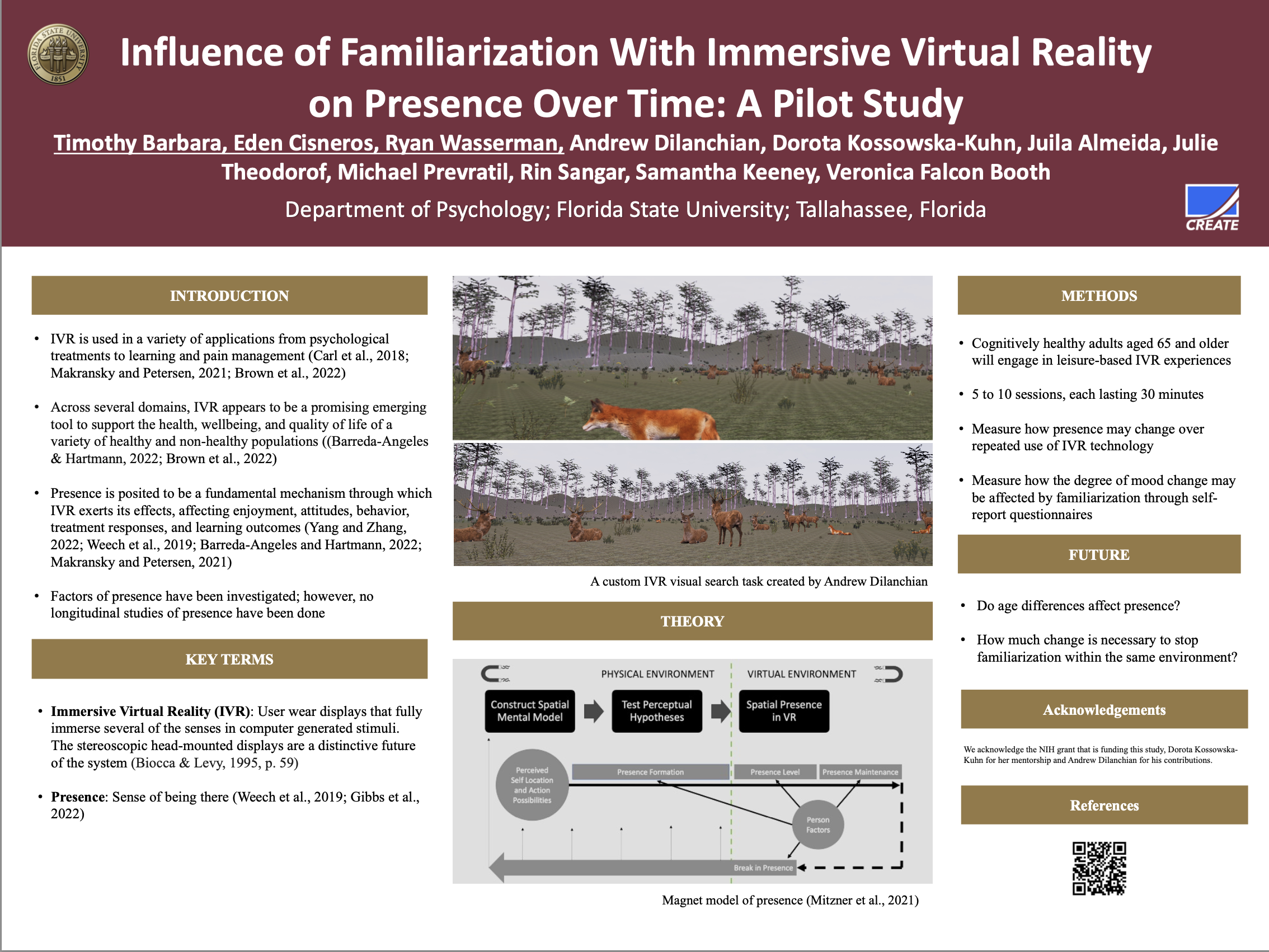Research Symposium
24th annual Undergraduate Research Symposium, April 3, 2024
Timothy Barbara Poster Session 4: 2:45 pm - 3:45 pm /168

BIO
B.S. of Psychology student from Tampa, Florida.
Influence of Familiarization With Immersive Virtual Reality on Presence Over Time: A Pilot Study
Authors: Timothy Barbara, Dorota Kossowska-KuhnStudent Major: Psychology
Mentor: Dorota Kossowska-Kuhn
Mentor's Department: Psychology Mentor's College: College of Arts and Sciences Co-Presenters: Eden Cisneros and Ryan Wasserman
Abstract
Abstract
Background: The effectiveness of Immersive Virtual Reality (IVR) across various domains such as medical interventions (Carl et al., 2018), social psychology (Barreda-Angeles & Hartmann, 2022) and cognitive training (Cohavi & Levy-Tzedek, 2022; Wais et al., 2021) is well-documented. Presence, or the "sense of being there," is a crucial element in the effectiveness of IVR (Weech et al., 2019; Gibbs et al., 2022). While IVR has been suggested to be a successful tool across a variety of domains, it may be that presence enables these outcomes. This study aims to explore how presence in IVR and degree of mood change are affected by repeated exposure.
Methods: We intend to investigate how presence may change over time during an IVR-based study, as well as how the degree of mood change, a commonly recorded behavioral factor in IVR paradigms, may be affected by familiarization. The study will involve cognitively healthy adults aged 65 and older, who will participate in leisure-based IVR experiences, engaging in 5 to 15 sessions, each lasting 30 minutes.
Results: We hypothesize that presence will decrease across repeat sessions.
Conclusion: The findings of this study will provide insights into the dynamics of presence in IVR and its psychological impacts over time.
Keywords: Presence, Virtual Reality, Familiarization

